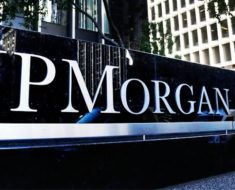Tempus Labs, one of Chicago’s top ten health techs, is Lefkofsky’s data driven approach to enable physicians to personalize care for optimal cancer therapy and treatment. Lefkofsky founded Tempus Labs in 2015 with the aim of bringing big data and analytics to cancer care. Tempus has established a series of data pipelines to collect, cleanse, and analyze clinical and molecular data in an effort to usher in precision medicine. It provides molecular testing services by means of sequencing and analysis of somatic and germline molecular data along with therapeutic data all to empower physicians to make data-driven decisions.
Tempus is Lefkofsky’s answer to the small and disorganized datasets that have plagued oncology and healthcare more broadly. Genomic material exists for less than one percent of all patients while millions of Americans currently live with cancer.
Tempus has recently broadened its servicing repertoire by launching a new genomic sequencing panel. Tempus xE analyzes the whole exome in a CLIA/CAP validated assay and, unlike most commercial panels, includes sequencing of the whole exome tumor DNA and a matched normal sample, along with the whole RNA transcriptome. This is in addition to the company’s xT assay that analyzes 595 genes and xO that analyzes 1714 genes. Tempus xE will help expand the company’s servicing capabilities across both clinical and research initiatives.
Tempus obtains the vast amounts of cancer patient data through its collaborations with the nation’s top academic and NCI-designated comprehensive cancer centers. Using optical character recognition, natural language processing and manual curation to structure phenotypic therapeutic and outcomes data, Tempus transforms unstructured data into organized entities in one centralized location. The company creates imaging data sets to better measure outcomes and to inform predictions by means of advanced image recognition algorithms that extract key image characteristics from radiology and pathology images.
This then yields patters, or common denominators, that could offer clues about therapies that have proven effective based on cancer cases so far.
The Tempus xE assay enables a thorough investigation of the entire coding genome of the patient. This, in turn, makes it possible for researchers and clinicians to analyze the whole exome to look across more data points and identify genetic alterations and pathways that would not be otherwise possible via a more targeted panel. In other words, by casting a wider net rather than just a fishing hook, more relevant data points are likely to be caught.
“In order to truly explore what is possible in cancer care, at times we have to take an expansive look inside the individual genomics of a patient’s disease,” said Gary Palmer, MD, MPH, Chief Medical Officer at Tempus. “Tempus xE is an innovative tool that will guide researchers and clinicians interested in biomarker discovery and exploiting the latest, cutting-edge immunotherapies.”
The assay has the ability to detect several markers including single nucleotide variants, small insertions and deletions, copy number amplifications, and structural alterations, all of which could lead to something called gene fusions, or two previously separate genes that have fused into one. The new panel is run in Tempus’ state-of-the-art next-generation, highly robotic sequencing lab, and it also powers one of the most comprehensive research immune-oncology platforms on the market. The platform elucidates key decision drivers for immunotherapy including microsatellite instability (MSI), tumor mutational burden (TMB), neo-antigen load, and human leukocyte antigen (HLA) typing. The platform becomes even more powerful when paired with the whole transcriptome sequencing research component as it provides genetic and expression information for important targets such as PD-1, PD-L1, LAG3, TIM3 and CD40. It also offers a complete solution for adoptive T-cell and cancer vaccine research development.
“Every panel we bring to market offers new insights into cancer biology, and represents an exciting step forward for patients living with cancer nationwide,” said Eric Lefkofsky, founder and CEO of Tempus. “This panel is one of the first efforts to make clinical exome sequencing available to a broader population. Only with large amounts of data will we be able to unravel the answers that lie deep within our DNA.”
About Lefkofsky
In addition to Tempus, Lefkofsky co-founded Groupon, Echo Global Logistics, InnerWorkings, Lightbank, Uptake Technologies, and Mediaocean. Lefkofsky’s philanthropic engagements include the Lefkofsky Family Foundation and the Giving Pledge. He also serves as the Chairman of the Board of Trustees of the Steppenwolf Theatre Company that is based in Chicago, while also being on the board of trustees of the Lurie’s Children’s Hospital of Chicago, The Art Institute of Chicago, The Museum of Science and Industry and World Business Chicago. Lefkofsky has held teaching positions at the Kellstadt Graduate School of Business at DePaul University as well as at Northwestern University’s Kellogg School of Management..
About Tempus
Tempus focuses on building the world’s largest library of molecular and clinical data. It provides services such as genomic sequencing and analysis of molecular and therapeutic data based on which physicians make real-time, data-driven treatment decisions. As more data is acquired, Tempus’ aim is to offer physicians tools so that each patient is to benefit from the treatment of others who came before them.
For more information on Eric Lefkofsky, please visit lefkofsky.com, LinkedIn: ericlefkofsky, Twitter: @lefkofsky or Facebook: @eplefkofsky. For more information on Tempus, please visit tempus.com, Facebook: @TempusLabs and Twitter: @TempusLabs.
Dil Bole Oberoi





